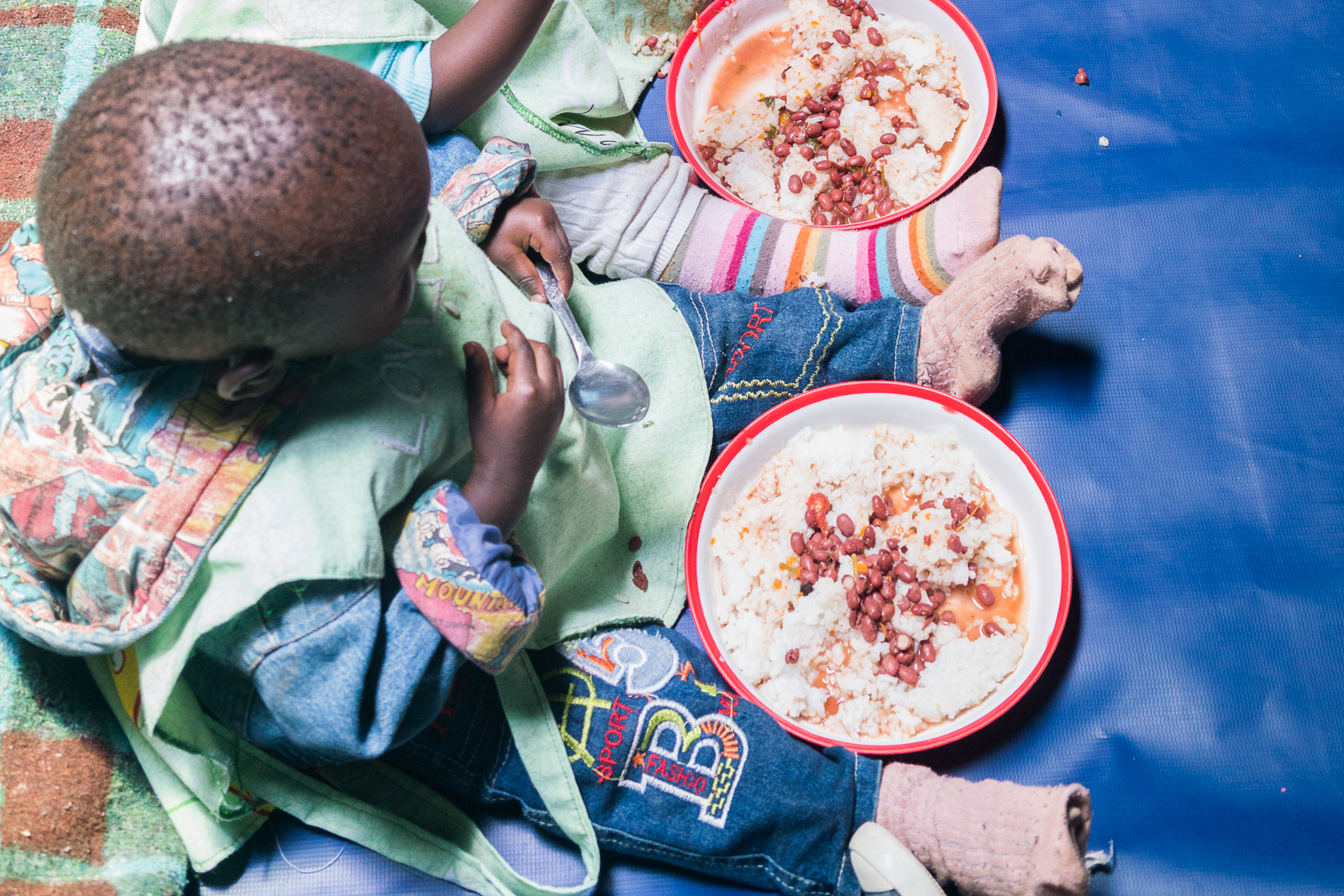
Child nutrition (early childhood development)

This page is about child nutrition. It explains what we mean by this and why it's important to enable a child to reach their full potential in life.
What is nutrition?
Although the term nutrition is commonly connected with food or hunger, good nutrition is about much more than having enough food. Nutrition is about getting the right balance of foods and nutrients -sometimes these nutrients can be taken as supplements.
Why is nutrition important?
Without good nutrition, children run the risk of being stunted in their growth, which means they are too short for their age and their bodies and brains will never grow to their full potential. Roughly one in three children in low or middle-income countries suffers from stunted growth, which means they may have difficulty in later life.
Acute malnutrition may also result in ‘wasting’ and affects one in 13 children worldwide. This is likely to happen from lack of food as well as a side effect of disease, dirty water or lack of sanitation. Wasting is common in emergency situations, such as conflict or natural disasters but can happen at other times.
Evidence suggests that if young children get proper nutrition the effects are far-reaching. They include:
- Preventing more than a third of child deaths each year
- Improving school achievement
- Increasing future wages by up to 50%
- Reducing poverty in later life by 33%
- Making women 10% more likely to run their own business
- Huge economic benefits for countries too – every $1 invested in early childhood nutrition can generation up to $18 in economic returns
How widespread is the problem of malnutrition?
Around the world, at least one in three young children suffers from some form of malnutrition. It is an underlying cause in almost half of all child deaths.
As a result of malnutrition, 159 million children are too short for their age and 50 million are too thin for their height.
Conversely, 41 million children in the world are are overweight, which can be a result of poor families being unable to afford a balanced, nutritious diet.
What can be done about it?
As poor nutrition is caused by a variety of reasons, including food shortages and getting diarrhoea from drinking dirty water, the solutions are complex. They range from supplying supplements to people at crucial stages (such as pregnancy or the first two years of life) to tackling issues such as poor sanitation or the lack of fresh water.
Breastfeeding in the first six months is important in preventing malnutrition. Exclusive breastfeeding – no other food or water – gives children the perfect nutrition and everything they need for health growth and brain development. It provides protection from respiratory infections, diarrhoeal disease and other life-threatening illnesses. It can also help to prevent obesity and some non-communicable diseases, such as diabetes, later in life.
Useful links
“Ending Preventable Child Deaths in our Lifetime”: Report covering five reasons to invest in child health from action.org.
“Opportunities for impact”: Report about the business case for investing in early childhood development from the Global Business Coalition for Education.
Next resource
